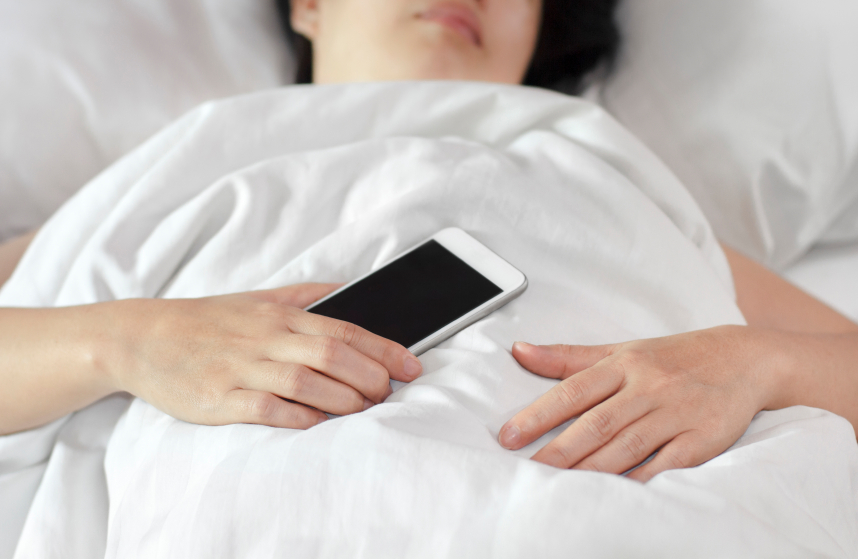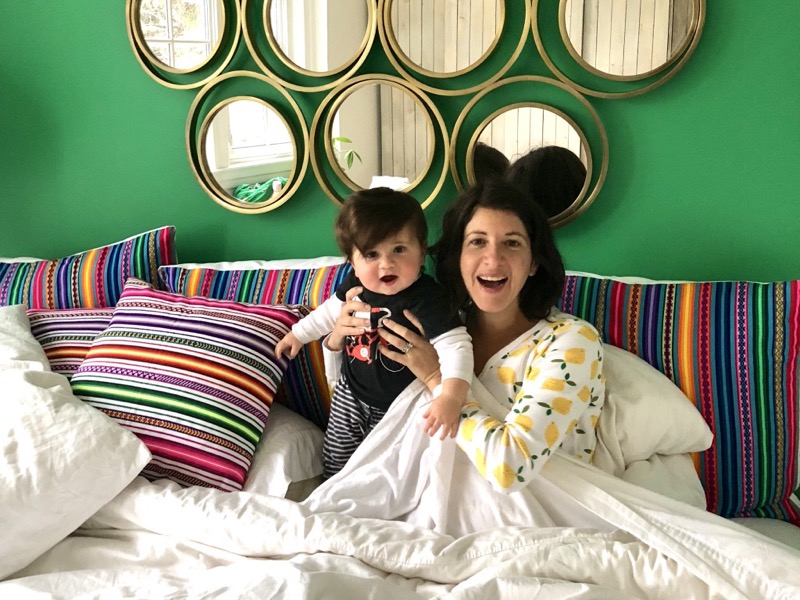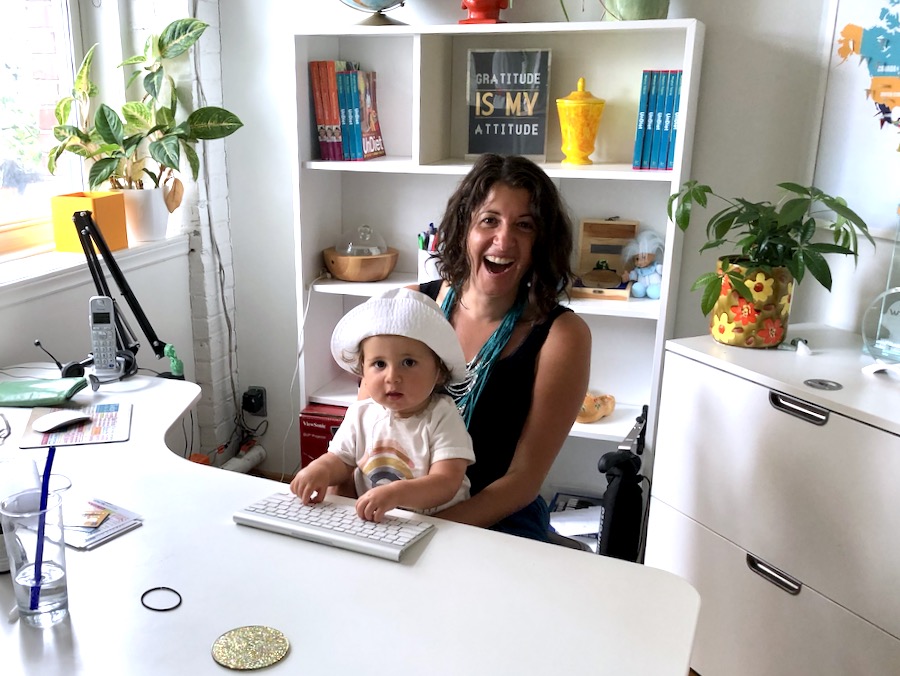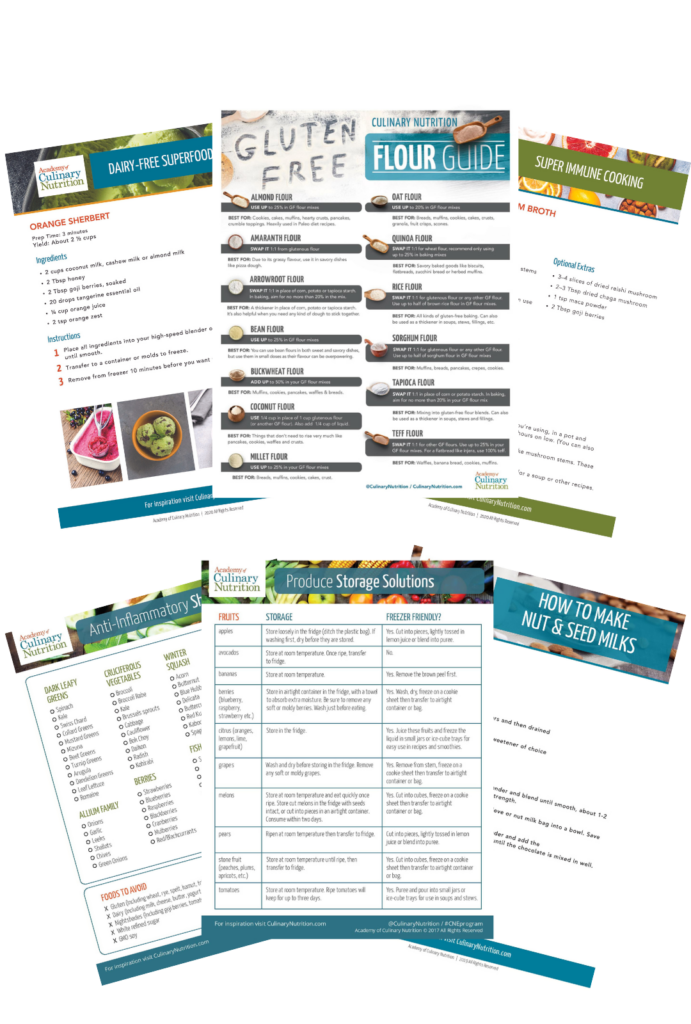Functional Coping Strategies In The “Stay At Home” Era
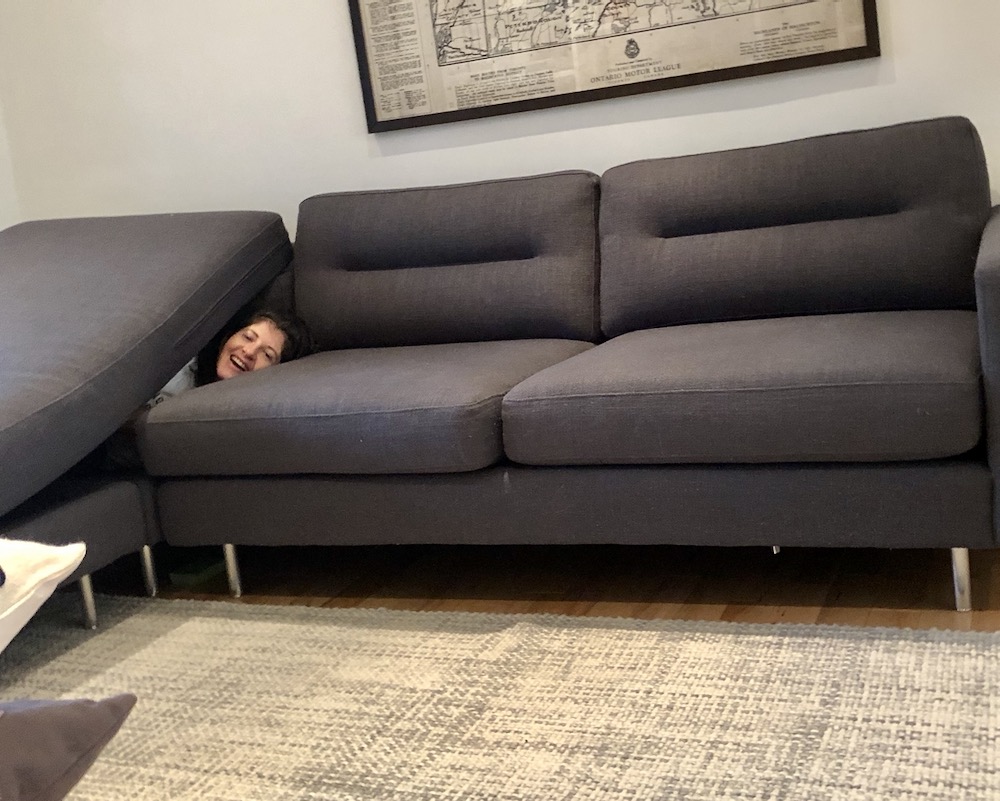
Finley, my almost 3 year-old, took that photo of me. He insisted. First he insisted on making a fort out of our ‘good couch’ and then told me to hide. Then he picked up my phone to take my picture. This was on a Tuesday morning, when I would normally already have been at work. Such is life during this pandemic and the ‘stay at home’ catch phrase.
How do we keep this going? We’ve been asked to stay home, keep our distance, and do everything we once did from other locations (learn, move, work, dine) all at home. It’s hard. I am grateful to have space in my home. I can change rooms and have natural light coming in through the windows. I also have a husband and an extremely active and social almost three-year-old child. My husband and I each run our own businesses and are working ridiculously hard right now to keep them going.
So yes, this is hard. For some, home life is excruciatingly hard. Gratitude often kicks in when I feel myself start to complain. I know that I don’t have it nearly as hard as many. But we’ve all had our usual ways turned upside down and, despite the help of perspective, it’s a struggle when nearly every part of our normal routines are no longer. We’ve all hit pause on life as we knew it. Most days I am okay. Most days I keep to my bubble. I Facetime with my family, take my little one out for a walk, exercise at home, make meals, do my work and repeat. It’s when I go out into the world; go to the main street in my neighbourhood and see the masked faces, the line-ups at shops, the papered windows of businesses that couldn’t find their way through the shutdowns, and that’s when it hits me.
As I write this, it doesn’t look like things are ‘going back to normal’, whatever that may look like, anytime soon. My concern right now lands with how we’re all coping with home life.
The way we are being asked to live is in no way how humans were designed to live. For most of us, being outside is healthier than being inside. We need fresh air, sunlight on our skin and in our eyes. We need to socialize in real life without a screen between us. We need fewer screens altogether, always. We’re consuming more media, and our sleep is suffering. Our routines have changed and, as such, so have our eating, movement and hydration habits.
In short, all of the things that are essential to our resilience – essential to our ability to fight off a virus – are being impaired. This has me deeply concerned.
I wanted to come up with something that I could share with you that would be useful. I know that when my anxiety is heightened, someone telling me to calm down or sit and meditate is a bit like adding gasoline to the spinning – it just blows it up. That so many of us are turning to sugar or alcohol to help change the way we are feeling, well, this is concerning too as those two substances are like a sledge hammer to the immune system, further impairing our inherent ability to fight infection.
So, what can we do? Below I have some functional, resilience-building coping strategies that perhaps might help inspire you to reinvent your home life in a health-supportive way.
9 Functional Coping Strategies for stay-at-home life
Cook Something New
I know certain ingredients might be hard to come by these days, and you certainly don’t want to make a trip to the grocery store every time you feel like trying a new recipe. Still, cooking something new can teach you an extra skill, add some excitement and joy to your home life, nourish your body, and help you bond with your family if you get everyone else involved. Plus there can be a calming aspect to chopping and prepping that can soothe.
Right now, baking gluten-free sourdough bread is one of the ways I cope. Aside from being absolutely delicious, there is a lot of routine to making sourdough, from feeding and maintaining the starter to the preparation steps to get ready to bake it. If sourdough isn’t your thing, here are many more cooking projects you can try at home.
Make Time For Mindfulness
Actively slowing down isn’t about sitting silently on your meditation cushion. During periods of intense anxiety, this could trigger a deeper state of challenge. Mindfulness is more about allowing yourself to sink into and anchor onto something that makes you feel better and calmer, while down-regulating any stimulation. This could be listening to certain music while lying down or outside for a walk, taking a bath while reading an uplifting work of fiction, massaging your feet (or having someone else do it for you!). This is about finding something that will move you out of spinning worry-filled thoughts into the present moment.
Create A Realistic Daily or Weekly To-Do List
Creating a manageable to-do list can help you get out of your own head and focus on productive ways to spend your energy. Plus, regular routines are good for our physical health and can help our bodies regulate sleep, appetite, and hormones. Many parents are creating schedules for their little ones to keep things moving through the day – and adults need them, too.
Your to-do list doesn’t have to include bigger endeavours like learning a new language or musical instrument. It can be as simple as:
- Waking up at the same time each day
- Taking a shower
- Getting dressed
- Going for a walk around the block
- Calling a friend or family member
- Making breakfast, lunch, and dinner
- Washing the dishes
- Doing a load of laundry
- Reading to your child
- Taking five deep breaths
- Watching an episode of something you enjoy
- Listening to a podcast or music
Of course, your routine may be more complex if you are working from home or have to manage home-schooling. If that’s the case for you, it’s handy to create work-related tasks (my team uses Asana for this), as well as any relevant tasks and routines for your children. What I know for sure is that when I have a two-hour stretch in front of me, sitting down to my to-do list for work has been the greatest source of grounding of all. It feeds my purpose and that helps.
Move Your Body
Moving your body in some way is crucial to your physical and mental health. Go outside for a walk, do some gentle yoga or find a good workout app or channel on Youtube. I am a huge fan of Obé Fitness and it has been a life-saver for me during this time. It’s still an important part of my weekly routine. Register over at Obé with coupon code MEGHAN50. It’s free for your first week without any obligation and if you decide to continue, you’ll get the first month at 50% off.
Radical Self-Reflection and Honesty
What do you want your home life – and general life – to look like from now on? Our life today is the new normal and realistically, things might not ever get back to the way they were pre-pandemic. This isn’t necessarily a bad thing, as these global circumstances have shown us some major flaws in our worldwide systems and this will hopefully inspire many changes. Instead of constantly pining for the way things were, consider what you can do to make things better, or at least manageable, right now.
Take note of what is working in your life right now and what’s not.
- What things can you control?
- What is outside of your control?
- What are some positive ways you can deal with what’s not working?
As an example, let’s say you wrote down that you are eating too many sugary foods and snacks and this just isn’t working for you anymore. Think about what you can do to improve this situation for yourself – perhaps you start off by limiting the number of treats you consume in a week, or swap the white sugar in your baking for a natural sweetener, or have a cup of herbal tea as your new evening ritual, or eat more protein with your meals. (As an aside, there are more tips to beat sugar cravings in this post.)
Or, your self-reflection might yield something much different – perhaps all of this will inspire a major career change or life trajectory. Be easy on yourself and also honest with yourself. What is in your capacity today to change for the better?
Reconnect With People You Miss
If I ask you about someone from your past that you’ve lost touch with and miss, who comes to mind? Call them. Right now. You know they’re home. Someone called me up out of the blue last week and I tell you, it was the most refreshing conversation I’ve had in ages. We talked about non-pandemic things; what we’re each working on, what we’re excited about, and what’s happening right now in our lives. It was so nice that I’ve committed to doing this regularly, now and ongoing.
Ask For Help (Or Give It)
We all need extra help and kindness right now and yet it can be really hard to get the tangible help we need. Many of us know our friends and family love us, but with social distancing guidelines and strict isolation rules, it’s tough to ask your sister to babysit or get a lift to the grocery store. But don’t be afraid to ask for help.
The home routines we’re used to may need some new rules and boundaries. It’s an all-hands-on-deck situation, in which your immediate family (or roommates) may have to help with the things they don’t typically do like cooking or vacuuming or child care. I recommend framing it as: ‘I’m really struggling with doing X right now. It would really help me out if you’d do (fill in the blank)’, rather than making demands or decrees.
Don’t underestimate the value of emotional support from friends, colleagues or family members. Call or video chat with your loved ones – even though they can’t physically help you, they will likely provide the relief, support, or even the distraction that you need.
Remember that the people you live with or your extended circle may ask you for help too – so be willing to help out in the ways you’re able. Check in on the people you know who are most vulnerable. Drop off a freezer meal or a batch of cookies on their porch. Answer your phone!
Join (or Start!) A Virtual Book Club
If you love reading, there’s no reason you can’t chat with others in a virtual book club. Ask around – your family and friends may be able to hook you up with a solid book club group. You can also check with your local library, as many of them have a multitude of free resources to keep you reading and connected. Read uplifting books and fiction, which can be a great escape. Being part of a book club can give you the opportunity to have conversations with others about something other than what supermarket is fully stocked on toilet paper and baking flour.
Plan and Plant Your Garden
My home garden has taught me some of my greatest lessons. I’ve already started planting seedlings – you can see how I made simple seedling containers using the paper I had lying around over on Instagram. This has been a great joy – and distraction – plus it gives me hope that I will be able to successfully grow my own food this year so we will be less reliant on the grocery store. If you don’t have a yard, that’s not a problem. You can grow many things inside on your counter!
What are you doing right now to cope with life? Please share in the comments so we can learn from one another. Most of all, please know that you are not alone in this – and we will make it through.
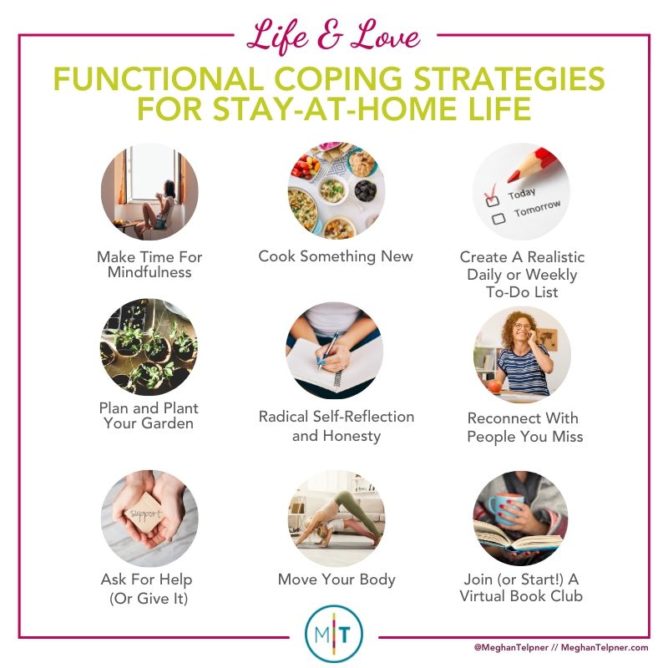
Free Resource Library
Enjoy more than 40 downloadable guides, recipes, and resources.
















